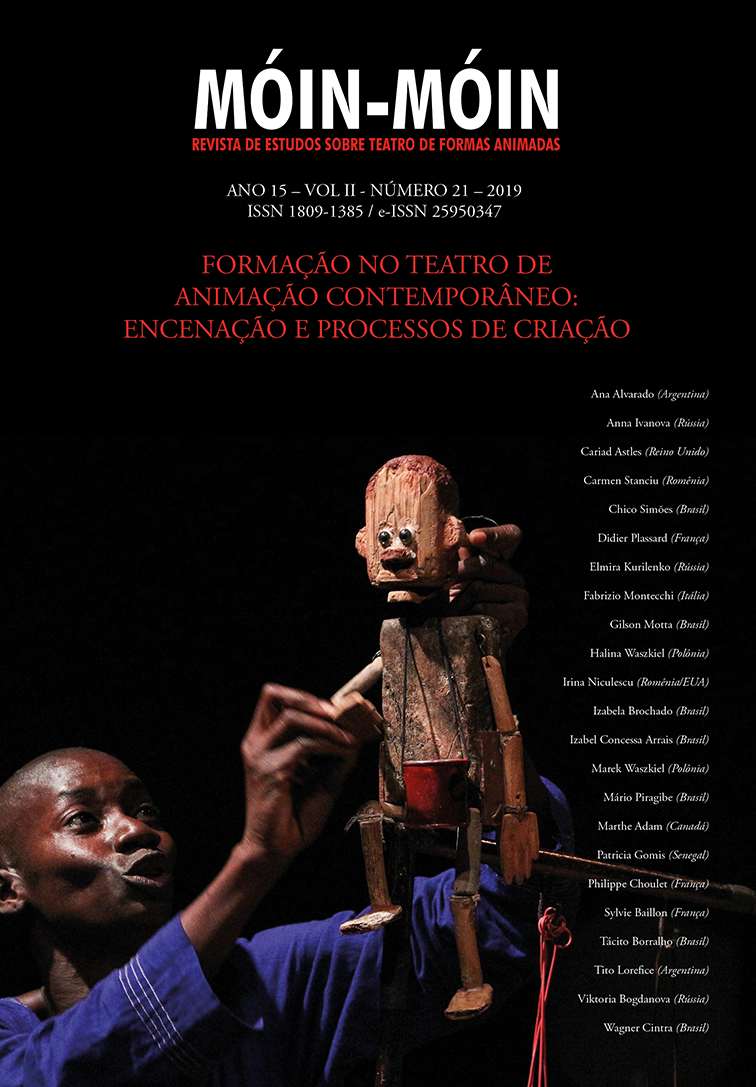The director in puppet theatre (Eastern European context)
DOI:
https://doi.org/10.5965/2595034702212019063Resumo
In Poland, as well in the East European countries, puppet theatres of the second half of the 20th century, and it seems that also in that of the first quarter of the 21st century, the most important person is a director. Was it always so that puppet theatre equals the director? So, the objectives of this study is to determine this problem. It was only in the beginning of 20th century, in the period of the great reform of theatre, that the director was given unlimited competencies. In puppet theatre this process lasted much longer, because the classical style of theatre organization, derived from unaccompanied and private enterprises of particular creators, also endured for longer. Today, it is a director who rules supreme in a puppet theatre. In practice, Polish directors are still convinced today that theatre is intended to tell stories. is process limited puppetry as an independently existing art based primarily on the abilities of the craftsmen; on the miracle of animating a lifeless object, a puppet, whose magical life has so much to offer the spectators. On the contrary, axis of this process stand the artists who see the meaning of their theatrical expression in bring lifeless matter to life. This – when puppet theatre is, after all, a show; it is visual art in motion, not storytelling.Downloads
Downloads
Publicado
Como Citar
Edição
Seção
Licença
Copyright (c) 2019 Móin-Móin - Revista de Estudos sobre Teatro de Formas Animadas

Este trabalho está licenciado sob uma licença Creative Commons Attribution 4.0 International License.
Ao submeter um artigo à Móin-Móin Revista de Estudos Sobre Teatro de Formas Animadas e tê-lo aprovado os autores concordam em ceder, sem remuneração, os seguintes direitos à Revista: os direitos de primeira publicação e a permissão para que a Revista redistribua esse artigo e seus metadados aos serviços de indexação e referência que seus editores julguem apropriados.
Os artigos cujos autores são identificados representam a expressão do ponto de vista de seus autores e não a posição oficial da revista Móin-Móin.
Plágio, em todas as suas formas, constitui um comportamento antiético de publicação e é inaceitável. A Revista Móin-Móin reserva-se o direito de usar software ou outros métodos de detecção de plágio para analisar os trabalhos submetidos.
![]()
Este obra está licenciado com uma Licença Atribuição-NãoComercial 4.0 Internacional






